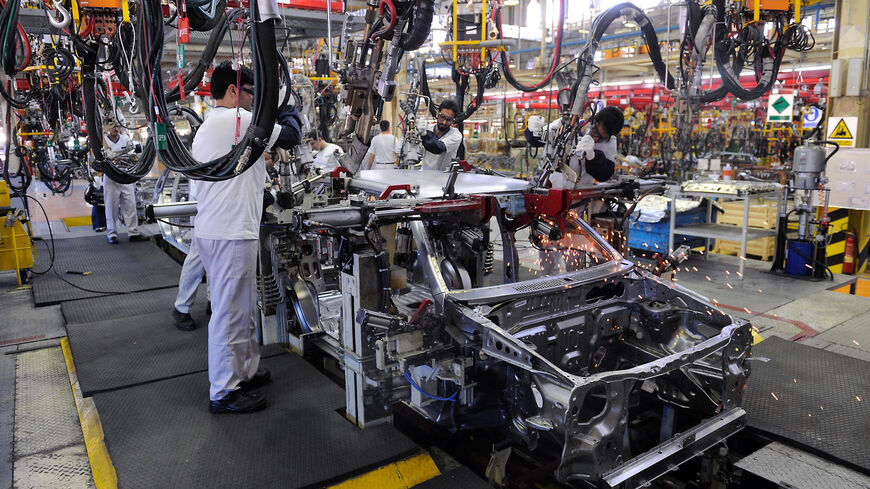A major Iranian automobile manufacturer announced on Wednesday an agreement to send vehicles to Russia and Belarus. The deal follows Belarusian President Alexander Lukashenko’s visit to Iran in March and further demonstrates strong relations between Russia and Iran.
SAIPA, the second-largest carmaker in Iran after Iran Khodro, said it will send 45,000 vehicles to Russia and Belarus within three years. The contract is worth 450 million euros ($497 million). SAIPA will specifically send the following three vehicles to Russia and Belarus, according to the official Islamic Republic News Agency.
- Shahin — a sedan
- Quik — a “small family car”
- Saina — a subcompact sedan
Why it matters: Iran and Russia have had strong relations for years. Most recently, Iran has supplied Russia with drones for use in the invasion of Ukraine. In March, Iranian Foreign Minister Hossein Amir-Abdollahian visited Moscow to discuss military cooperation between the two countries.
Belarus is close to Russia, and the Eastern European country has also improved its relations with Iran this year. Lukashenko and Iranian President Ebrahim Raisi discussed boosting cooperation in the industry, agriculture, transportation and technology sectors during the former’s March visit.
In addition to the SAIPA deal, in April, Iran’s Mahan Air launched direct flights from Tehran to the Belarusian capital Minsk. Raisi and Lukashenko discussed the flights during their meeting, the Islamic Republic News Agency reported at the time.
The pricing of the SAIPA agreement in Euros is also notable. In August of last year, Iran announced that it started using its own currency, the rial, and the Russian ruble for trade with Russia.
SAIPA has sent vehicles to other countries friendly to Iran in the past. Last November, SAIPA announced an export of vehicles to Venezuela.
Know more: The Iranian government has a plan to sell 500,000 vehicles directly to consumers in an effort to reduce prices in the market. The project will have only a “limited impact” on Iran’s car market, Bijan Khajehpour wrote in a memo for Al-Monitor PRO in March.








